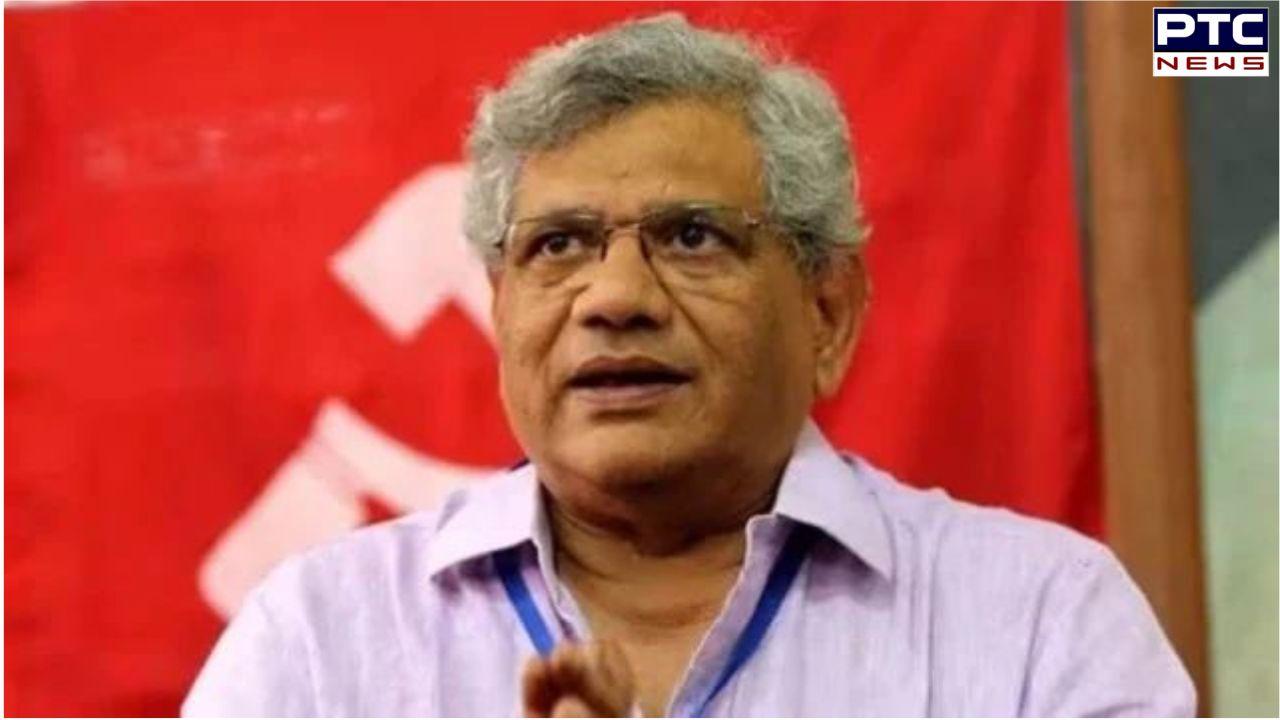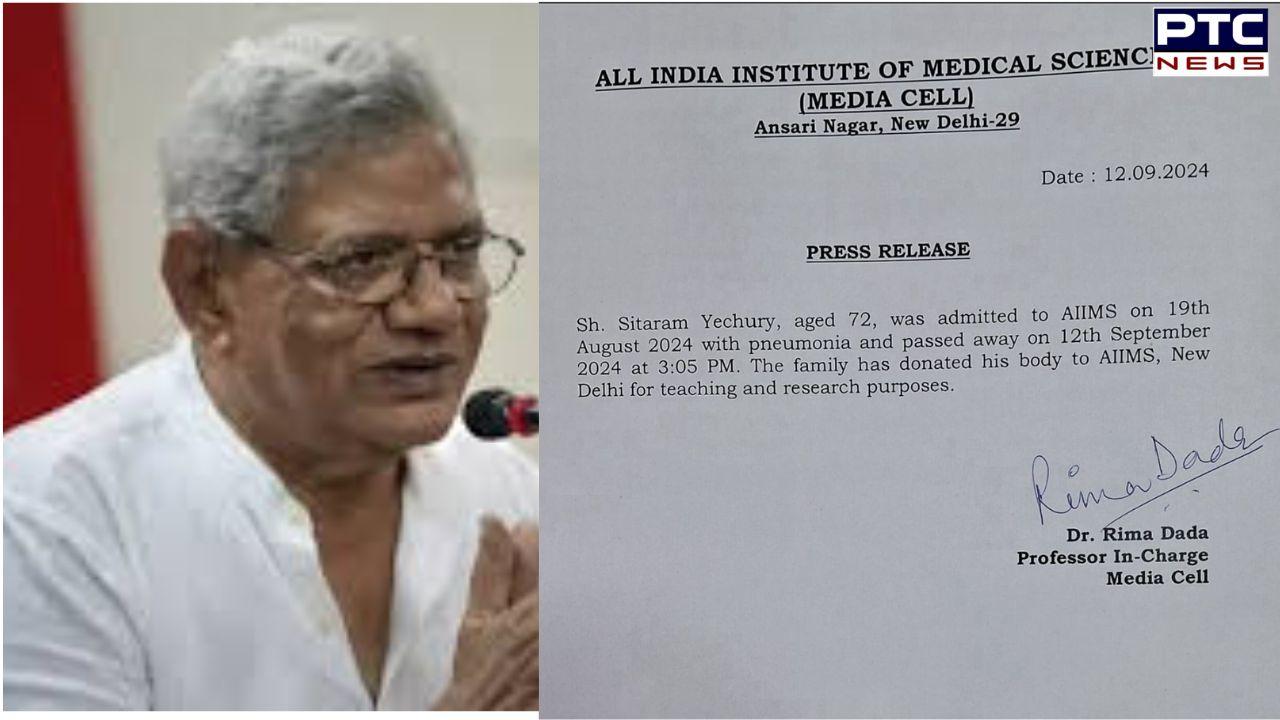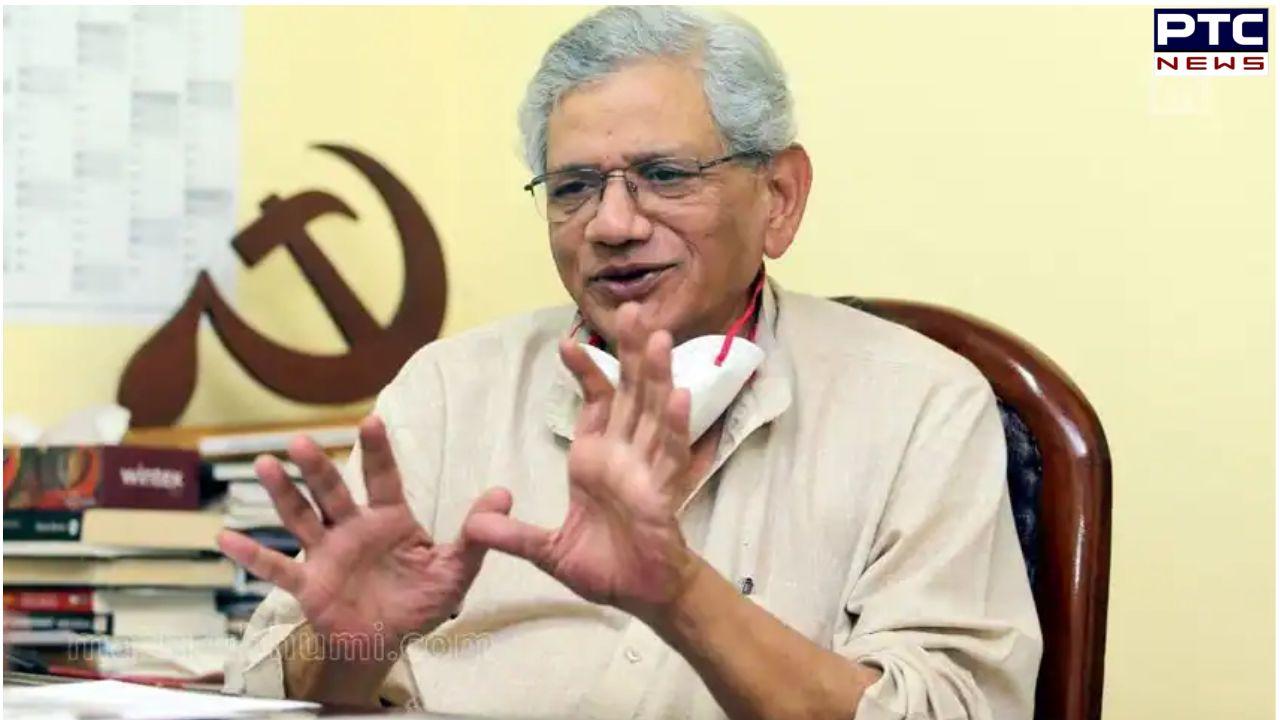

Veteran CPM leader Sitaram Yechury dies at 72; body donated to Delhi AIIMS | Know all about him
PTC Web Desk: Veteran CPI(M) leader Sitaram Yechury died at the age of 72 on Thursday. He was under treatment for acute respiratory tract infection at ICU in All India Institute of Medical Sciences (AIIMS). Yechury is survived by his wife, Indrani Majumdar. The couple had a son, Ashish Yechury, who passed away earlier. The leader's family has donated tto AAIMS for research purpose.

He was admitted to AIIMS New Delhi on August 19 for the treatment of a pneumonia-like chest infection. Yechury was under oxygen support. His health was being monitored by a multidisciplinary team of doctors. Earlier, Sitaram Yechury's condition had been listed as critical but stable. He was the general secretary of the Communist Party of India (Marxist).

Towering figure in Indian politics
Yechury served as a member of the CPM politburo for 32 years and assumed the role of the party's general secretary in 2015. He represented West Bengal in the Rajya Sabha from 2005 to 2017.
Born on August 12, 1952, in Chennai, Sitaram Yechury was originally named Yechury Sitarama Rao. He was the son of Sarveshwara Somayajalu Yechury and Kalpakam, a Vaidehi Brahmin couple. Inspired by P Sundarayya, the first general secretary of the CPM, who had dropped his caste-based surname, Yechury followed suit, changing his name to Sitaram Yechury.
Like Sundarayya, Yechury also hailed from Andhra Pradesh, becoming the second leader from the state to hold the CPM’s top position. Yechury came from a distinguished family. His paternal grandfather, Yechury Sitarama Rao, was a tehsildar in East Godavari, Andhra Pradesh, while his maternal grandfather, Kandha Bhima Shankararam, was an advocate at the Madras High Court and later a judge at the Andhra Pradesh High Court.
Due to his father’s job as an engineer with the Andhra Road Transport Corporation, Yechury frequently changed schools during his early years, studying at the Railway School in Vijayawada and All Saints School in Hyderabad. His education was interrupted by the Telangana agitation in 1967–68 while he was pursuing his pre-university course at Nizam College, Hyderabad.
Yechury’s family later moved to Delhi, where he completed a higher secondary course in science and mathematics at the President’s Estate School. He then went on to graduate with a first-class BA in Economics from St. Stephen’s College, Delhi, before pursuing an MA in Economics at Jawaharlal Nehru University (JNU).
At JNU, Yechury was elected president of the JNU Students’ Union three times, solidifying his reputation as a student leader.
During the Emergency, JNU became a hub of student activism, and Yechury was arrested for protesting against Menaka Anand (later Menaka Gandhi) entering the School of Languages.
In 1984, Yechury was elected National President of the Students' Federation of India (SFI) and became a permanent invitee to the CPM Central Committee alongside Prakash Karat. By 1985, he, Karat, and S Ramachandran Pillai were full members of the Central Committee, and all three were inducted into the Politburo in 1992.
Yechury played a key role in shaping the General Minimum Programme of the United Front government in 1996, collaborating closely with P Chidambaram and S Jaipal Reddy. In 2004, he worked with Jairam Ramesh to draft the UPA government’s Common Minimum Programme.
- With inputs from agencies
